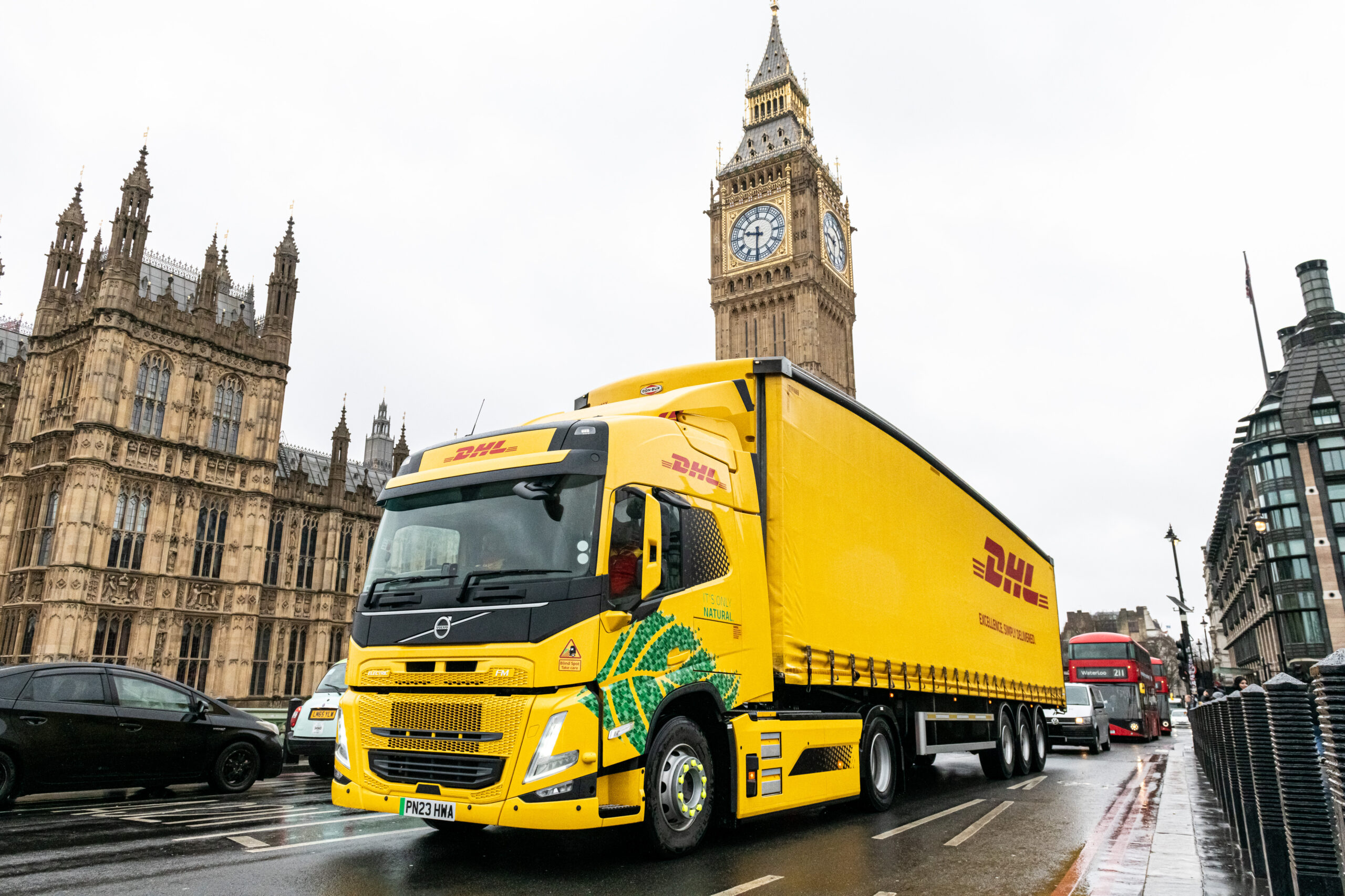DHL Supply Chain has taken delivery of four 40-tonne Volvo FM fully electric HGVs making it the first company to operate them in the UK.
The trucks are designed for high-capacity deliveries and directly replace diesel vehicles on a range of activities.
Featuring Volvo’s largest 540kWh battery which provides 666hp, the zero-emissions trucks have a range of up to 180 miles, allowing them to complete full round-trips servicing DHL’s retail and automotive customers across the UK.
The new trucks share the same controls and latest safety features seen on conventional diesel Volvo FM vehicles, making the transition for drivers as safe and easy as possible.
According to DHL, early feedback from drivers has been extremely positive, especially with regard to acceleration and hill performance.
The company says the investment in industry leading vehicles reflects its commitment to ensuring its fleet is best in class and offers the highest levels of service to its supply chain customers, as well as reflecting DHL’s own ambitious Go Green agenda.
DHL already has a number of smaller Volvo FM Electric trucks in its UK fleet.
Saul Resnick, CEO DHL Supply Chain UK & Ireland, DHL Supply Chain said, “Today marks an important milestone in our journey towards alternative fuel vehicles.
“The size and capability of these trucks make them a truly viable alternative to diesel as they fully meet our needs and those of our customers.
“Following our introduction of the UK’s first 16-tonne rigid electric truck in late 2020, we’re proud to continue to lead the way in electric commercial transport.”





Battery only powered heavy goods vehicles are far heavier than fuel cell electric vehicles, so are less energy efficient. The massive chargers required to charge them and the long charging time is already placing a new strain on the National Grid to power them when the grid is already under strain to support them and connect new sources of renewable electricity. We should ask ourselves why Europe, the Far East and many states of the USA are already building networks of hydrogen filling stations around their road networks, while here in the UK there are now fewer operational hydrogen filling stations than there were two years ago. The strategy of our National Infrastructure Commission is to only support the building of EV charging points which is already having a serious impact on the grid.